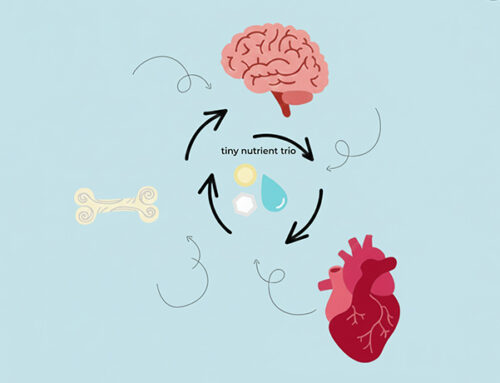Ketogenic diet may help you lose more weight in the first 3 to 6 months than some other diets. But with the emerging research on gut microbiome, some of the pressing questions are: Is ketogenic diet good or bad for gut microbiome; How does commensal flora changes with keto diets? Can you use keto diet to lose weight and keep it off?
“Ketogenic” is a low-carb high-fat diet to get more calories from fat and protein and fewer from carbohydrates. Keto diet causes the body to release ketones into the bloodstream which usually happens within two to three days of eating fewer than 30 to 50 grams of carbohydrates per day. In the absence of blood sugar from carbohydrate, body will use ketone bodies to generate energy until we start eating carbohydrates.
Kiet diet induces fat oxidation and faster weight loss which is mainly attributed to the fact it takes more calories to change fat into energy than it does to change carbs into energy. Keto diet can help manage certain medical conditions, like epilepsy, and may improve blood sugar control for patients with type 2 diabetes, at least in the short term. It may help people with heart disease, certain brain diseases, and even acne. A ketogenic diet may help endurance athletes when they train.
Gut microbiome (gut flora + its genetic elements), an emerging theme in personalized nutrition, play an important role in several metabolic processes and human diseases, such as obesity and accompanying co-morbidities, such as fatty liver disease, insulin resistance/diabetes, and cardiovascular events. Each person’s microbiome appears to be unique and is readily modified by diet. The normal metabolic profile of the gut flora significantly changes if there is any imbalance in core gut microbiome. Our diet doesn’t just affect our guts in ways we can feel; it can also influence the structure and function of our microbiota, Several studies on microbiome now suggest that a diversified dietary plan is the healthiest to balance and stabilize core gut microbiome.
A ketogenic diet is rich in proteins and fats and typically include plenty of meats, eggs, processed meats, sausages, cheeses, fish, nuts, butter, oils, and seeds. Some keto dieters also uses saturated fatty acid like medium chain triglycerides for faster keto energy conversion via liver metabolism. Generally speaking High Fat Diet (HFD) and animal proteins seems to increase proinflammatory groups of bacteria in the gut flora. A diversified vegan diet can be particularly beneficial because it contains large amounts of different types of dietary fibers. Further, high-protein diet containing animal sources is associated with increased production of TMAO, a metabolite associated with heart disease that is produced by gut microbes and absorbed into the body.
Some studies have found that people who consume a vegan diet have lower levels of TMAO. With carbohydrate-restricted animal fat and protein oriented diets, the keto dieters may not get enough good prebiotic fibers that can nurture and diversify antiinflammatory flora in the gut and may increase the levels of TMAO. These factors might be the reasons for what keto dieters calls as Keto Flu – side effects of keto diet- which include stomach upset, constipation, headache, weakness, and irritability; bad breath; and fatigue. These effects will be definitely be linked on gut flora dysbiosis.
The complex interactions between ketogenic diet and gut microbiota and how this large network may influence human health is an emerging theme. A recent study looked at the effect of ketogenic diet on multiple sclerosis (MS) patients and found that effects of a ketogenic diet were biphasic; in the short term, bacterial concentrations and diversity were further reduced and it started to recover at week 12 and exceeded significantly the baseline values after 23-24 weeks on the ketogenic diet.
KetoBiom: A Gut Microbiome Modified Ketogenic Diet
KetoBiom is a gut microbiome optimized modified keto diet where you incorporate specific dietary components to negate some bad effects of traditional keto diet on gut microbiome.
- Dietary Fiber: KetoBiom diet recommends to add gut flora diversifying prebiotics to the diet plan which you can get it from low-carb high-fiber rich fruits, vegetables and nuts. But if you are not sure if these fibers are coming from diets try to include a good prebiotic supplements in your daily regime.
- Dietary Fat: One of the main criticisms of keto diet is that many people tend to eat poor-quality fats from processed foods with more saturated fatty acid. KetoBiom diet recommends to include 50-60% monounsaturated and polyunsaturated fats in the total fat intake. Good healthy oils from avocado, olive, algae and flaxseed is loaded with monounsaturated fatty along and polyunsaturated fatty acids. Including these oils in the dietary plan will significantly benefit gut microbiome. Medium chain tryglycerides (MCT) oil aids in further production of healthful ketones. Look for an MCT oil that is certified USDA organic, hexane free, derived from coconuts (not palm oil), and is non-GMO.
- Dietary Protein: Including at least 50% protein from plant sources will nurture a balanced, rich and healthy gut flora and metabolic profile.
- Dietary Carbohydrate– Even the small amount of carbohydrates that you take in keto diet is vital for gut flora. Studies have found that consumption of microbiota-accessible carbohydrates (MACs) found in dietary plant polysaccharides has a significant effect on suppressing detrimental flora. Some beneficial gut flora that were residing in your gut need these carbs to keeps going. Remember, suddenly shutting down these key carb sources might also affect the growth of your good commensal flora. Wisely choosing whole grain based healthy carbs may also be a key, especially if you are planning to slowly add carb back into the diet after a keto diet plan.
- Having diversity in diet – Why do most diet plans not deliver as it touts? Simply said ‘boredom’. Most people start out well, but after too many meals that are too restrictive with limited diversity, people lose interest, get bored, then quit. KetoBiom is all about food diversity; Making diversity in your meals with the knowledge of many healthy choices that you can have is fundamental to KetoBiom. The more choices you have, the more chances that you develop it as a long-term lifestyle change than a 1 month quick-fix weight loss plan.
You can call it Keto, Paleo, KetoBiom, but culturing a powerful set of personalized dietary habits and supplement regime that can nourish both you and your good flora is key and this along with an active lifestyle can make all the difference between setbacks and lasting success for a long, healthy, vibrant life.




